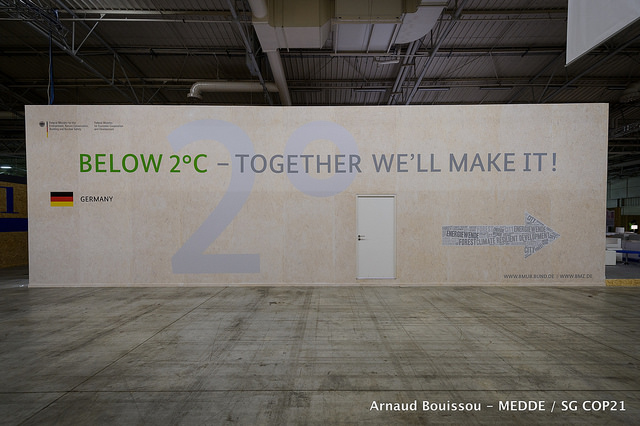By Bamidele Oni
Now that the dusts of the many events that made 2015 an exceptional year is gradually settling down and the holidays have been done with, nothing seems more agreeable and practicable than building on the many foundations laid out for progress in the previous year.
While the previous year was typically a primary year of rooting for global action within a clearly defined blue print, 2016 is just the beginning of the definition of the promises and agreements reached in 2015. So, that means the expectations are of higher stakes in the New Year and of course on a progressive scale of improvement in the coming years.
The sustainable development goals now need a soft landing in the constructive templates of global and various national policies all of which would serve as pointers towards the potential of reaching the set targets and goals in the coming years. Looking through history and current interdependent nature of the social and economic outlook of the world, societal divisions and status classes cannot be accounted as an oversight as the influence is clearly spelt out in global responses to issues of mutual concerns.
In a view of being critical, most problems the world is facing now have a root in this factor of disparity which has delayed the much needed collective action for a formidable action.
So to ensuring we take the course of reaching a meaningful end point of success, the elements of equity and justice are needed to allow for fairness in deals. However, equity does not necessarily mean everyone gets the same, but in the view of everyone getting the equivalent of what is necessary within their relative sense of life necessities.
Now that we have the closest thing we could term as a global deal on climate change, the next course of action is getting all modalities together in making the deal reflect in reality.
A lot of efforts have gone into the making of the provisions as made available in the agreement and all that would really matter now is the swiftness in actualization. As the year unfolds, the potentials are still quite unpredictable as the variables to propound such projections are still not clearly available. However, the need to push forward on that which was agreed on in Paris is envisaged to take precedence on the agenda listing of all concerned governments of the world, be it developing, developed or the emerging economies.
Looking behind at how far we have come, what has been achieved and the expectations in the coming year, one could see through the thin line of difference between formulation and actualization. It took several years of moving in the circles of debate before we finally arrived at an all round affirmation and now that we are done with formulation and we must await the actualization which of course this time around could be quantified with references to the Intended Nationally Determined Contributions each country submitted prior to the meeting in Paris.
Though the reliance on the nationally determined contribution has been noted as weak due to the fact there seem not to be in place, a clearly defined collective system of measurement which ensures an admissible level of enforcement and which in turn gives room to countries acting out within the pace of their relative comfort.
Although the Paris agreement despite the many applause has been under heavy scrutiny as to the feasibility of delivery and the failure to include due measures towards short term targets on green house gas emission reduction but rather on the look ahead to peaking emissions and arriving at a balance in emission and removal between 2050 and 2100.
The Paris agreement is however set to be forced into law after the elapsing of the extended window period of the Kyoto protocol in 2020 when at least 55 countries must have ratified the agreement and by then and according to some expert, we must have exhausted the carbon budget for the 1.5C temperature target in the view of a future projection.
Needless to say that there is still a lot to do to call the move an achievable one. The rapidity of the ratification of the new deal rests on two giant nations ( the U.S and China) as they contribute the largest percentage of emissions and they both constitute more than 55% of the total global support needed for the new deal to become legally binding. A little reservation with regard to the U.S as the bill would have to pass through the very divided senate while China would have to do so well in considering the health of the planet ahead of economic implications.
In good faith we await a new turn of event to complement the Paris deal as one of the formidable deals we have had in recent years.
Now, a lot of recourse would have to be put in place in the manner of finances, transferable technologies for the sake of building up on resilience and adaptation and a bottom-top approach is a definite preference for the necessary interventions in already vulnerable communities and countries.
However good or bad, the most important step of redefinition starts with the determination and the responsibility drive of every individual towards making do with what avails in options and the governments working up on the different plans submitted before the meeting while each country remains assailed on the paths to achieving a less to zero carbon laden economy in the shortest time frame.
Sincerely Yours Earthly
Oni writes from Abeokuta, Nigeria













